Natural Remedies for Anxiety
A deep breath and a cup of tea are just some of the natural remedies for anxiety.
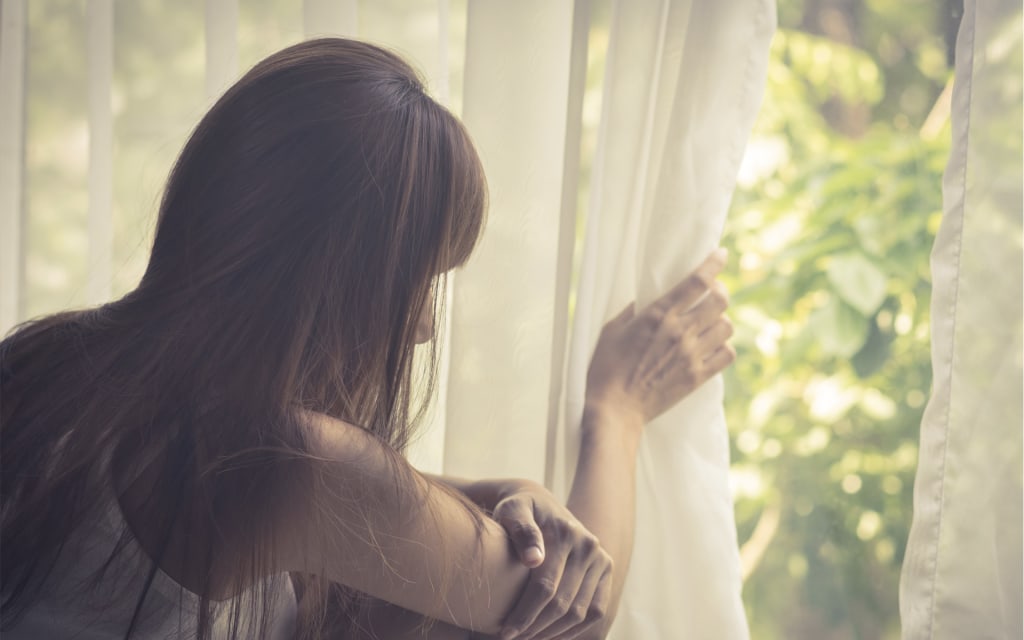
Anxiety—a term coined for the “fight or flight” state of mind which has affected humans since prehistoric times. We see this term among medical dictionaries, our favorite celebrities’ fan pages, and our best friends’ social media accounts. Anxiousness is a psychological state that has become common for most in their day-to-day lives as we are pressured by work, finance, family, and the impending fear of an unknown future. Many are affected by anxiety. Fortunately, with the rise of interest in alternatives to conventional Western medicine, we are given a multitude of natural remedies for anxiety.
Breathing Basics
It begins with the breath. The monks and nuns of older (and simpler) times had the right idea. The ability to control your breath is directly linked with slowing down anxious thoughts. The great thing about breathing is that you don’t need to be a monk to do it—just be yourself! When we practice breathing deeply into the diaphragm, we are accessing our full-lung capacity, allowing for more oxygen to flow through the body. When you panic, your breathing becomes rapid and shallow, cutting off the sufficient oxygen supply that you need to remain calm. There are plenty of breathing exercises on the internet, but I will give you one of the simplest techniques that I use as natural remedies for anxiety.
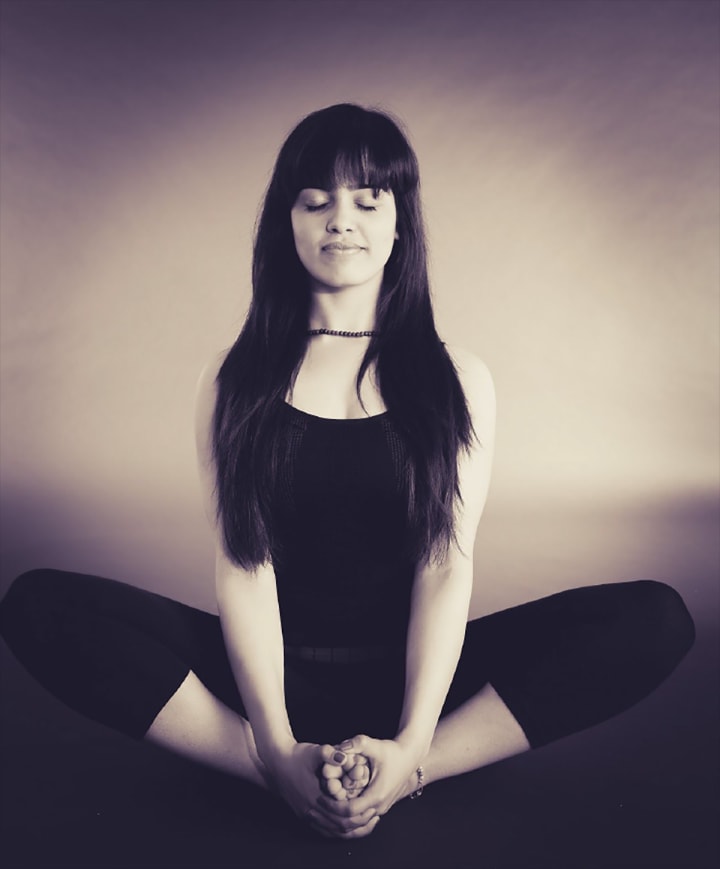
Photo via Diet Indian
The one-to-two ratio, or 1:2 technique, is one I have been using for years. I favor this one because of the technique’s adaptability to every individual. Those who have been practicing breathing techniques for years may be able to inhale longer than someone who is just beginning. We don’t want to put excessive stress on the body. For the 1:2 method, we will start by either sitting in a meditation position (Indian style, half-lotus or full) or in a chair. After finding your sitting position, straighten your back and rest your hands on your thighs in a comfortable posture. The goal for the 1:2 is to exhale twice as long as you inhale. It is important to pause between breaths to create the transitional breath. For example: if you inhale for six seconds, you will want to exhale for twelve with a four-second pause. An ideal start is a four-second inhale, pause for four, and exhale at eight. Do this for as long as you like.
Hydration
Although the human body is made up of 55-60 percent water, the average person does not drink enough water in one day. While we all know it is recommended to drink eight glasses of water a day, I recommend drinking a little more. This is especially important if you went out the night before or drank too much coffee in the morning. Your body and mind will thank you for it. Why is water essential for easing the anxious mind? Since water is such a large component of the human body, it is easy to dehydrate. When we dehydrate the body, the brain returns to the primitive “fight or flight” mentality, which is the basis of anxiety as we previously discussed.
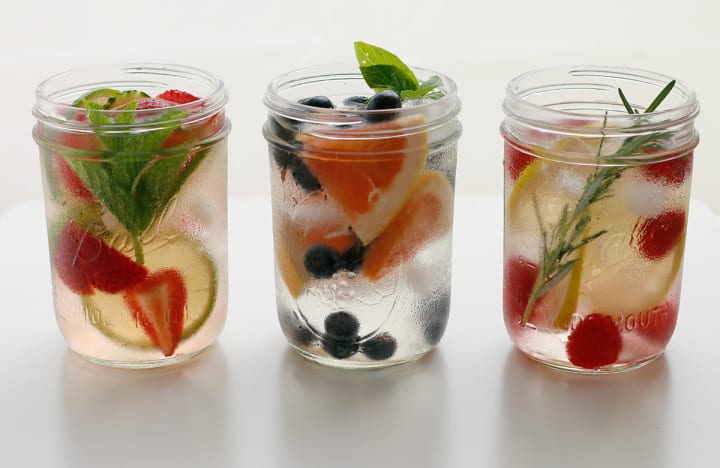
Photo via All Recipes
Keeping our bodies hydrated throughout the day alleviates the extra strain on our minds caused by dehydration. Beginning your day by drinking a glass of room-temperature water is a great way to incorporate hydration into your daily routine. If you want a little extra flavor, add lemon juice to a warmed glass of water, which also wakes up that body and flushes the system after a night’s rest. If you find water tasteless and boring, you’re in luck. Next time you are at the grocery store, pick up some cucumber, mint, pineapple, or basil and make your own infused water! Get creative and have fun as you put together your hydration masterpiece. If you want to spend a little more, coconut and ionized water are great alternatives. Regardless of which water route you choose to embark upon, avoid sweeteners. When the body detects sugar, it uses all that delicious water to dilute it, leaving your body in a constant cycle of dehydration.
Morning Routine
A tranquil and healthy morning routine is imperative to starting the day anxiety-free. You should be ready to face the world with whatever it has to throw at you. Tomorrow morning, we are going to start a new routine that will make the day’s to-do list less stressful and more enjoyable.
The normal daily routine for most is to get as much sleep as possible by hitting the snooze button, jumping in the shower while coffee is brewing, throwing the coffee in a to-go cup, and rushing out the door. You might grab breakfast, if you remember. Now, doesn’t reading that sentence make you a little anxious? That may sound a lot like your morning routine! One of the most effective natural remedies for anxiety is to start the day with meditation. Remember the 1:2 breathing technique? Let’s tie that in with your morning routine, a tall glass of water, and you have set the stage for a peaceful day.

Photo via The Huffington Post
Gradually begin to wake up earlier. This will be one of the harder steps in your new anxiety-free life, however, it is the most crucial. Why rush the most important time of the day? Start small. Set your clock back 15 minutes more each morning and ease yourself into getting up earlier. Do you like to read but never have time? Or enjoy cooking but you are always at the office? These precious morning moments can be the time in your day during which you fulfill the desires you daydream about during meetings and presentations.
Instead of hitting snooze, wake up and enjoy a few minutes practicing a breathing technique that works best for you. Start your day in control of your breath so you can return to that feeling whenever you become stressed throughout the day. Drink some water. Have a bath or a shower if you'd like. Yes, you can now enjoy a bath because of all this free time! Enjoy your tea or coffee in the morning. Smell it, let the heat hit your face, and appreciate the moments of serenity. Pair your coffee or tea with a meal prepared intentionally. Choline is a nutrient found densely in eggs, and it is known to decrease anxiety. Make a healthy, high-protein breakfast and notice the energy that fuels your newly refreshed body.
Oils, Herbs, and Community

Photo via Zelph on the Shelf
The emergence of herbs and flowers to as natural remedies for anxiety has been proven effective among many naturopaths and yoga philosophers. The idea of turning back to nature is plausible. Think about it, how did our ancestors relieve anxiety? There were no pharmaceutical drugs—just what the Earth had to offer them. These same remedies are still readily available today in a plethora of formats including teas, flowers, oils, and dried powders. Go check out that hippie co-op store or a local farmer's market. In today’s day and age, Amazon may even carry these items from responsible vendors!
Trade in a coffee for a cup of tea. Decreasing or completely eliminating caffeine from one’s diet has proven to be a successful battle against anxiety. Caffeine increases the fight or flight response accompanied by the jitters that are known to trigger an anxiety attack. If you are caffeine dependent, like most of us, start by switching to green tea. The green tea will provide the caffeine you need without the jittery side effects of coffee.
If you want to experiment with some effective (and delicious) herbal teas, try a mix of rose petals and lavender, chamomile, or kava. Peppermint tea is good for digestion and a mood lift! These teas are easy to find and effective in treating symptoms of anxiety. The flowers and herbs can be found not only in tea, but in oils as well. Indulge in a spruce of lavender essential oil before bed to slide easily into a good night's rest.
One comprehensive study showed that community was effective in alleviating the nerves. What are your hobbies? Are they sewing, reading, or running? Find a network of people in your area who enjoy the same hobbies as you. Finding healthy connections with people you can laugh and enjoy your time with has been proven to not only relieve anxiety, but also improve your overall mood. These are things we often forget about, but are easily accessible. Don’t let anxiety overtake the things you enjoy most about your life.
About the Creator
David McCleary
Holistic health practitioner. Believes in using natural remedies over traditional medications whenever possible. Volunteers at a recycling plant.


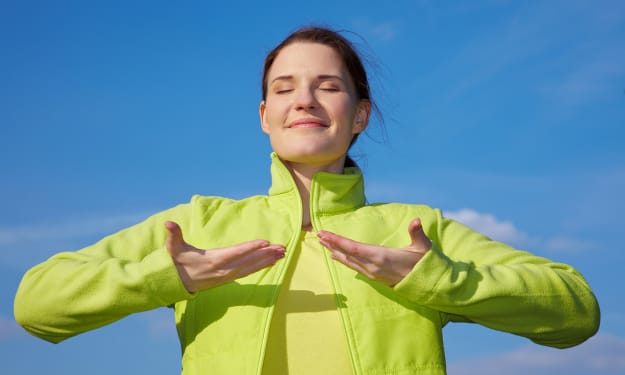

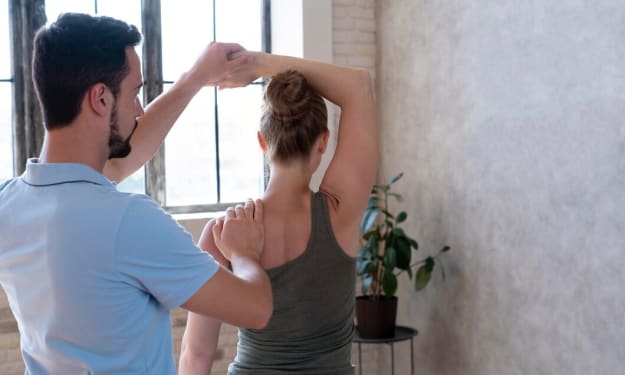

Comments
There are no comments for this story
Be the first to respond and start the conversation.